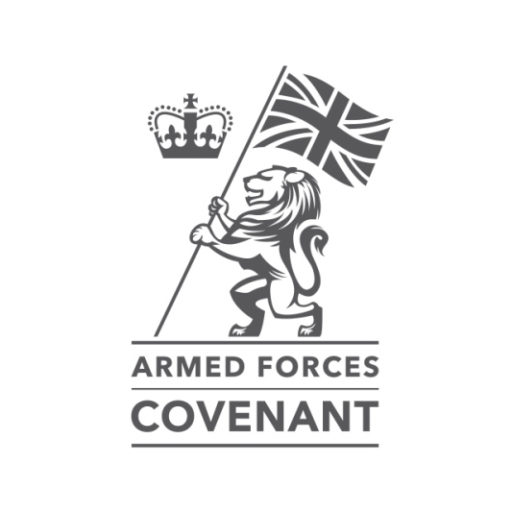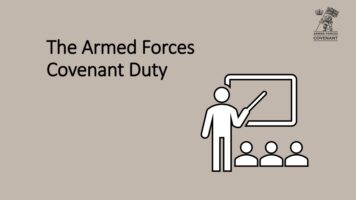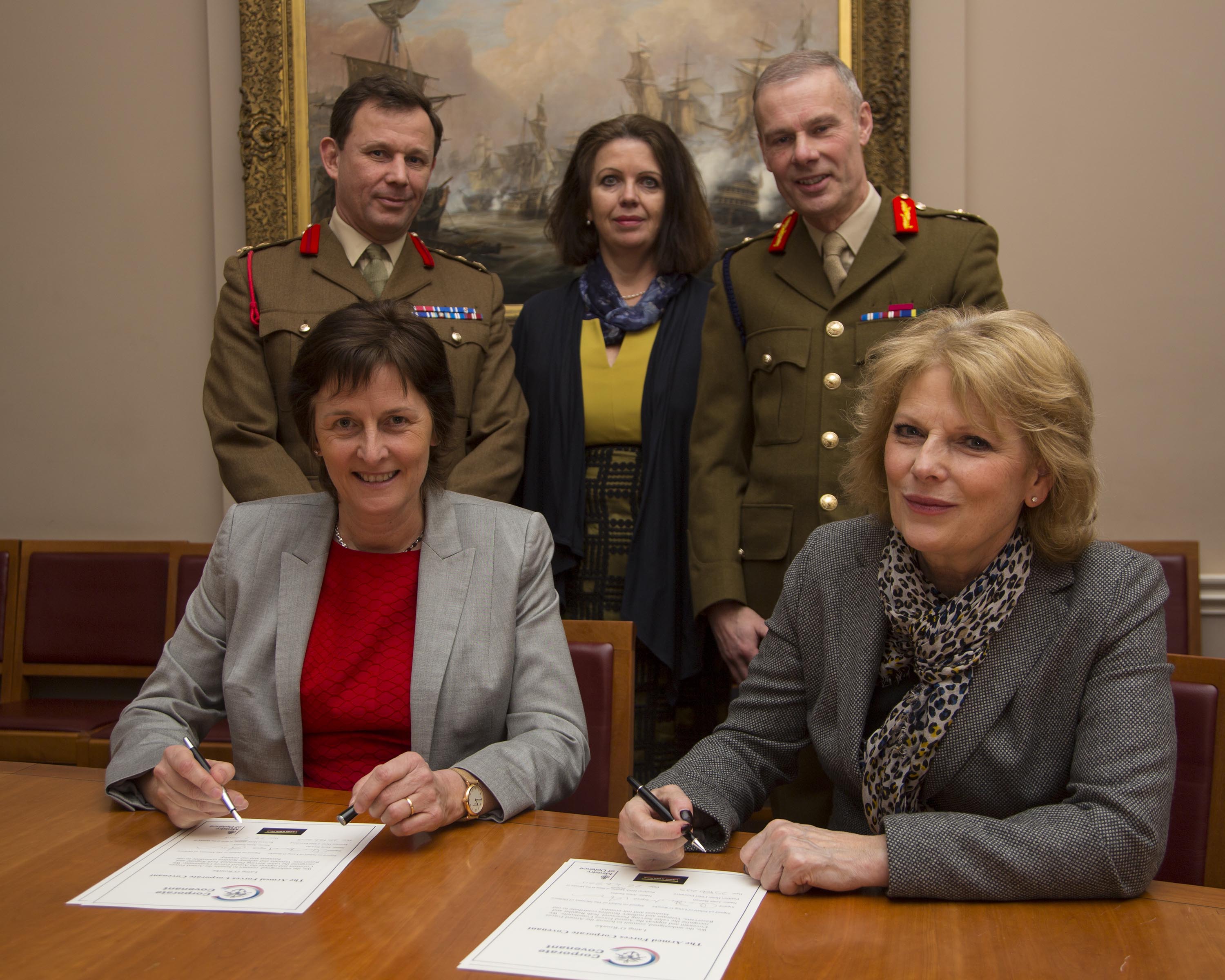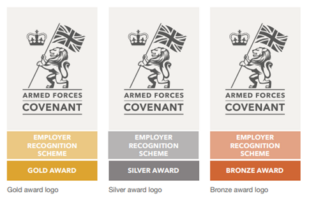FAQs – The Covenant
Answers to Frequently Asked Questions (FAQs) about the Covenant are provided below.
Understanding the Covenant
Please see About the Covenant for an introduction to the Covenant, and The Covenant in depth to read about the Covenant in more detail.
The underlying principles are the same in both, but the Covenant and the Covenant Legal Duty are different as follows:
- Voluntary vs legal obligation: The Covenant is a promise which organisations voluntarily implement, some of whom sign a Covenant pledge or make other public commitments. The Legal Duty is a legal obligation that affected organisations must abide by.
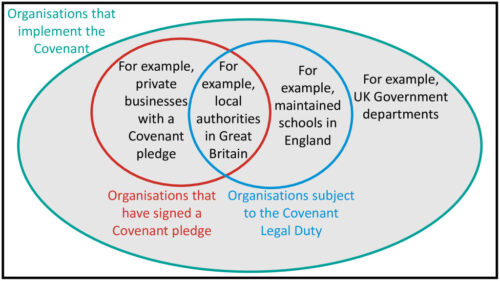
- Organisations affected: Any organisation in the public, private and third sectors can implement the Covenant, or sign a pledge. The Duty affects certain specified organisations, all of which are in the public sector.
- Circumstances covered: The Covenant covers broader circumstances than the Legal Duty:
- The Covenant applies to the provision of all goods and services. However, the Legal Duty applies to the provision of certain goods and services in healthcare, education, and housing.
- The members of the Armed Forces community covered by the Covenant are not defined precisely. Therefore, it can include wider groups, such as certain members of the Merchant Navy. However, those covered by the Duty are defined precisely by the legislation.
- Definitions: The statement of the Covenant defines the Covenant promise. It came into existence in its current form when it was published on 16 May 2011 by the then Secretary of State for Defence, Dr Liam Fox. Part 16A of the Armed Forces Act 2006 defines the Legal Duty. It came into existence through the Armed Forces Act 2021, and it came into force on 22 November 2022.
No. As explained in Q2, while the underlying principles are the same in both, the organisations subject to them are different, and the Covenant covers broader circumstances than the Legal Duty. Therefore, the Covenant is still beneficial, even for organisations subject to the Legal Duty.
The Covenant is not an obligation on citizens, governments, and organisations of other countries, as the statement of the Covenant says it is ‘The People of the United Kingdom’ and ‘His Majesty’s Government’ with this obligation towards the UK Armed Forces. Members of the Armed Forces community experiencing difficulties when dealing with organisations in other countries should take this up through other routes. For example, the chain of command or one of the wider sources of support.
The Covenant does apply when British organisations provide goods or services to members of the Armed Forces community who are abroad.
No. The statement of the Covenant says it is for ‘All those who serve or have served in the Armed Forces of the Crown, and their Families’, and this does not include other countries’ Armed Forces (except this could include members of British Overseas Territory Forces, and their families).
Implementing the Covenant
Please see the Organisations page to access ideas for how different types of organisation can implement the Covenant.
Please see Sign the Covenant for full information on how to sign the Covenant.
Yes. The UK Government and Devolved Administrations work to implement the Covenant principles in policy development and decision making. The UK Government is statutorily required to present to Parliament a Covenant Annual Report each year. This covers their progress in delivering the Covenant across all four home nations of the UK.
The term ‘Armed Forces Champion’ is not defined in legislation, and is used slightly differently by different organisations. Other terms are also used, such as ‘Armed Forces Advocate’ or ‘Service Pupil Champion’. Broadly, it is an individual, or a team of individuals, who:
- advocates for the Armed Forces community and the Covenant within their organisation,
- co-ordinates their organisation’s internal and external activities relating to the Armed Forces and the Covenant, and/or
- is the point of contact for members of the Armed Forces community who want to raise issues with someone in the organisation who will understand the unique circumstances of their Service life.
Resolving disputes
Concerns should initially be raised with the organisation concerned, by following their standard complaints process.
Complaints that remain unresolved can be referred by the complainant to the relevant ombudsman. The key public sector ombudsmen are: Public Service Ombudsman for Wales, Scottish Public Services Ombudsman, Northern Ireland Public Services Ombudsman, and in England, the Local Government & Social Care Ombudsman, Housing Ombudsman, or Parliamentary and Health Service Ombudsman.
For more information about the Covenant, please see:

